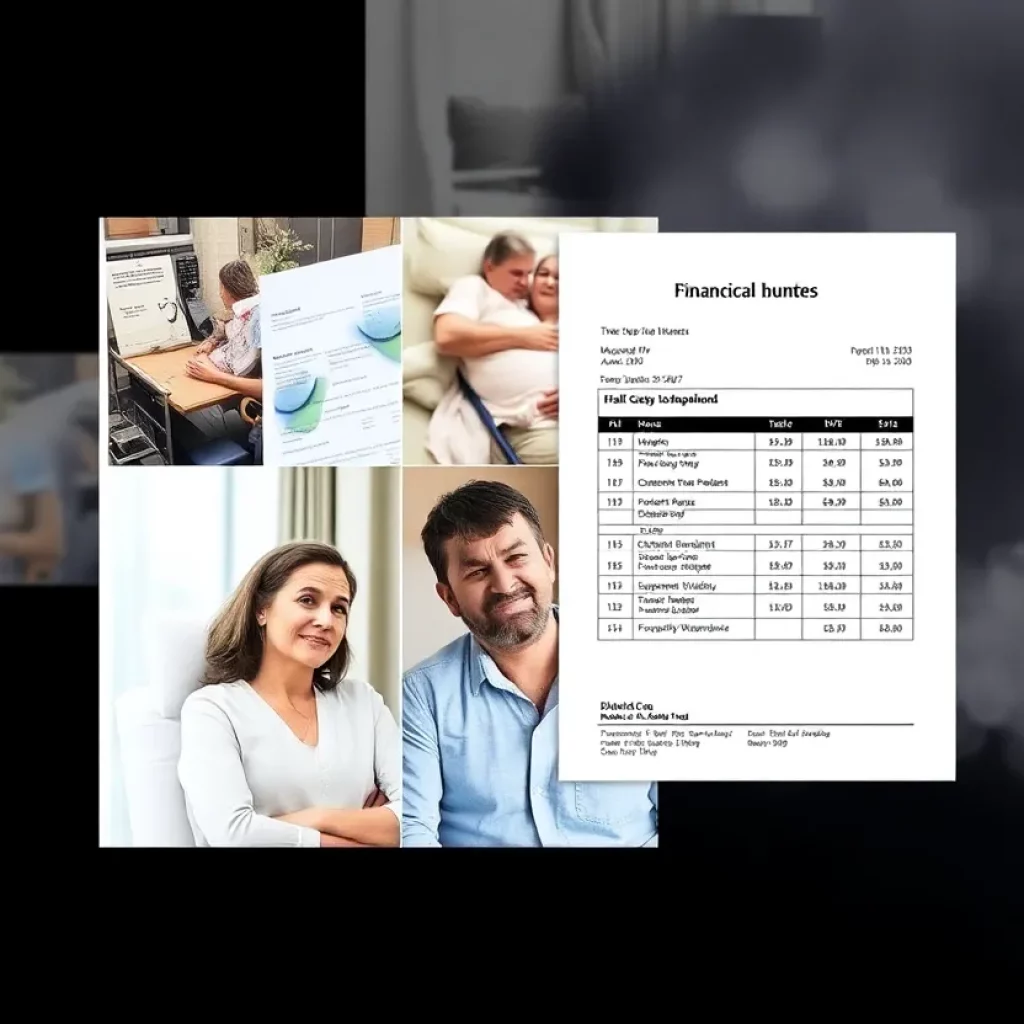News Summary
Mesothelioma patients face significant financial challenges due to costly treatments often covered by Medicare and Medicaid. Proposed cuts to these programs could lead to delayed care and increased out-of-pocket expenses. Legal compensation may be necessary to alleviate these burdens. Advocacy for healthcare rights is crucial as alternative support resources provide additional assistance to those in need.
The Financial Strain of Mesothelioma Treatment: Government Programs Under Threat
For those battling mesothelioma, a notorious cancer often caused by asbestos exposure, the road to recovery is paved with financial challenges. The treatment required, which typically includes surgeries, chemotherapy, and hospital stays, comes with a hefty price tag. Many patients find themselves relying on government programs like Medicare and Medicaid to bear these costs. However, changes in funding for these programs could spell disaster for countless Americans seeking the care they urgently need.
Vulnerable Patients at Risk
More than half of mesothelioma patients qualify for Medicare, a federal health insurance program predominantly serving those aged 65 and older, as well as serious disability patients. Because mesothelioma often develops years after initial asbestos exposure, a diagnosis frequently coincides with Medicare eligibility. This program generally covers crucial treatments, from surgical interventions to chemotherapy sessions.
On the other hand, Medicaid plays a pivotal role for low-income individuals, helping them gain access to necessary medical care. This program, administered by state and federal governments, is particularly critical for those who either do not qualify for Medicare or need additional aid. With an estimated 90 million recipients in the United States, Medicaid ensures vital treatments remain accessible to the vulnerable, many of whom face the complexities of mesothelioma.
Proposed Cuts: A Looming Crisis
As lawmakers debate potential cuts to Medicare and Medicaid, alarming reports suggest that over half of patients dependent on these programs might find themselves delaying necessary treatments. Delaying treatment isn’t merely an inconvenience; it could allow mesothelioma to spread, greatly impacting life expectancy. Cuts could also deter healthcare providers from accepting patients insured by Medicare and Medicaid due to decreases in government reimbursement rates, leading to longer travel distances for care and added out-of-pocket expenses for patients.
Additional Barriers to Care
Even if Medicare doesn’t face direct funding cuts, proposals like Project 2025 could create new hurdles for patients. This initiative suggests moving patients into Medicare Advantage plans without their consent, a shift that might hinder access to necessary treatments and lead to unpredictable out-of-pocket costs. The situation is further complicated by impending reductions in Medicaid funding affecting millions, particularly younger mesothelioma patients.
Medicaid, designed to support lower-income individuals, finds its role indispensable given that mesothelioma predominantly affects older adults who qualify for Medicare. Cuts to Medicaid would potentially limit access to critical cancer screenings, medications, and essential treatment services.
The Financial Implications of Treatment
For many mesothelioma patients, the financial burden of treatment is overwhelming. With rising expenses for medicine, caregiving, and travel, the need for legal compensation becomes critical. Individuals exposed to asbestos, whether through employment or military service, may need to explore litigation as a means to secure funds for their medical expenses and necessary travel arrangements. Even for those with Medicaid, pursuing legal recourse could be vital to alleviating the financial pressures associated with healthcare costs.
Exploring Alternative Support Resources
Staying informed about changes in Medicare and Medicaid policies is essential, especially as election seasons approach. Patients are encouraged to advocate for their healthcare rights, ensuring they do not lose access to vital treatments. Luckily, multiple alternative financial resources exist, such as non-profits, grants, and foundations that assist with medical bills. Programs like Corporate Angel Network and Angel Flight provide free travel for patients needing expert care, while Airbnb’s Open Homes initiative offers cost-free housing for cancer patients and caregivers.
Additionally, Fisher Houses provide free accommodations for military families in need of medical care. Emotional support and practical assistance are available through hospice care and counseling services for patients and families facing this difficult journey. For those affected by mesothelioma, organizations dedicated to raising awareness and providing support play a crucial role in navigating these turbulent waters.
A Call to Action
With the threat of proposed cuts to essential healthcare programs, mesothelioma patients and their families must remain vigilant. The financial strain associated with healthcare is a heavy burden, exacerbated by the unpredictability of treatment access. Exploring legal options for compensation and leveraging support networks can be critical lifelines for those grappling with this devastating illness.
Deeper Dive: News & Info About This Topic
HERE Resources
Legal Turmoil Shuts Down Asbestos Clinic in Libby, Montana
Vanessa Yen: Trailblazing Patent Lawyer Shines at Awards
Libby, Montana’s CARD Clinic Faces Closure Amid Legal Strife
Libby’s Asbestos Clinic Closure Sends Shockwaves Through Community
Celebrating Armed Forces Day: Legal Support for Veterans
Libby’s CARD Clinic Closure: Community in Crisis
Charleston Hope Lodge Renamed in Honor of Schulze Family Foundation
Lawyer Insights: The Rising Tide of Talcum Powder Litigation Against Johnson & Johnson
Family Lawyer Advocates for Justice After Leeds Worker’s Asbestos Death
The Asbestos Crisis in Louisiana: Legal Support for Affected Workers
Additional Resources
- Newsweek: Medicare, Medicaid Cuts Would Force Half of Patients to Delay Care: Poll
- Kaiser Family Foundation: The Debate Over Federal Medicaid Cuts
- Medicare.gov: Understanding Medicare Advantage Plans
- American Cancer Society: Cancer Patients and Income
- Mesothelioma.com: 9 Government Programs and Nonprofits That Can Help with Medical Bills
Author: STAFF HERE CHARLESTON
The CHARLESTON STAFF WRITER represents the experienced team at HEREcharleston.com, your go-to source for actionable local news and information in Charleston, Charleston County, and beyond. Specializing in "news you can use," we cover essential topics like product reviews for personal and business needs, local business directories, politics, real estate trends, neighborhood insights, and state news affecting the area—with deep expertise drawn from years of dedicated reporting and strong community input, including local press releases and business updates. We deliver top reporting on high-value events such as the Spoleto Festival USA, Charleston Wine + Food Festival, and the MOJA Festival. Our coverage extends to key organizations like the Charleston Metro Chamber of Commerce and the Charleston Museum, plus leading businesses in tourism and maritime industries that power the local economy such as South Carolina Ports Authority and the Charleston Visitor Center. As part of the broader HERE network, including HEREaiken.com, HEREbeaufort.com, HEREchapin.com, HEREcharleston.com, HEREclinton.com, HEREcolumbia.com, HEREgeorgetown.com, HEREgreenwood.com, HEREgreenville.com, HEREhiltonhead.com, HEREirmo.com, HEREmyrtlebeach.com, HEREnewberry.com, HERErockhill.com, HEREspartanburg.com, HEREaustin.com, HEREcollegestation.com, HEREdallas.com, HEREhouston.com, and HEREsanantonio.com, we provide comprehensive, credible insights into South Carolina's dynamic landscape.










